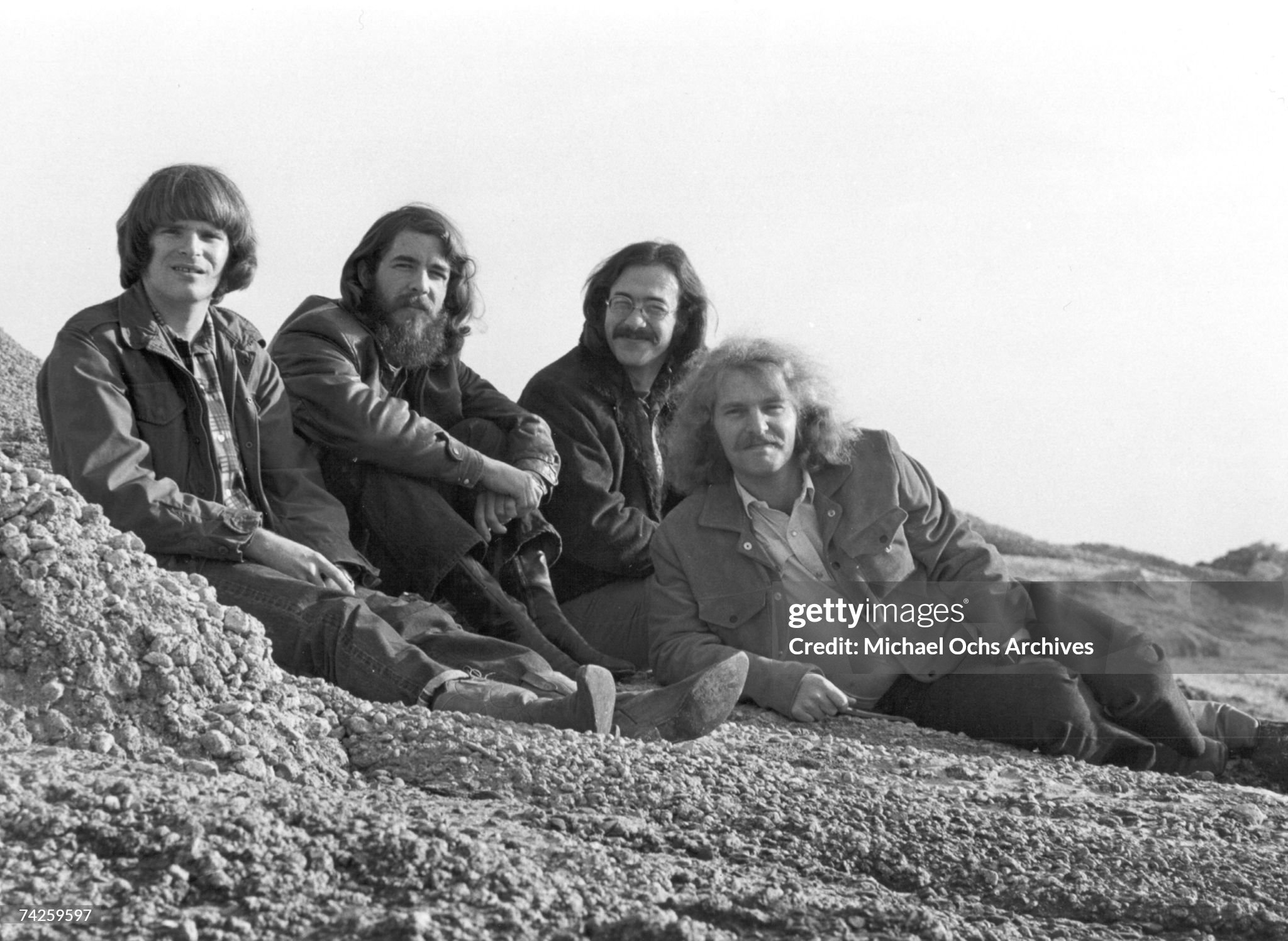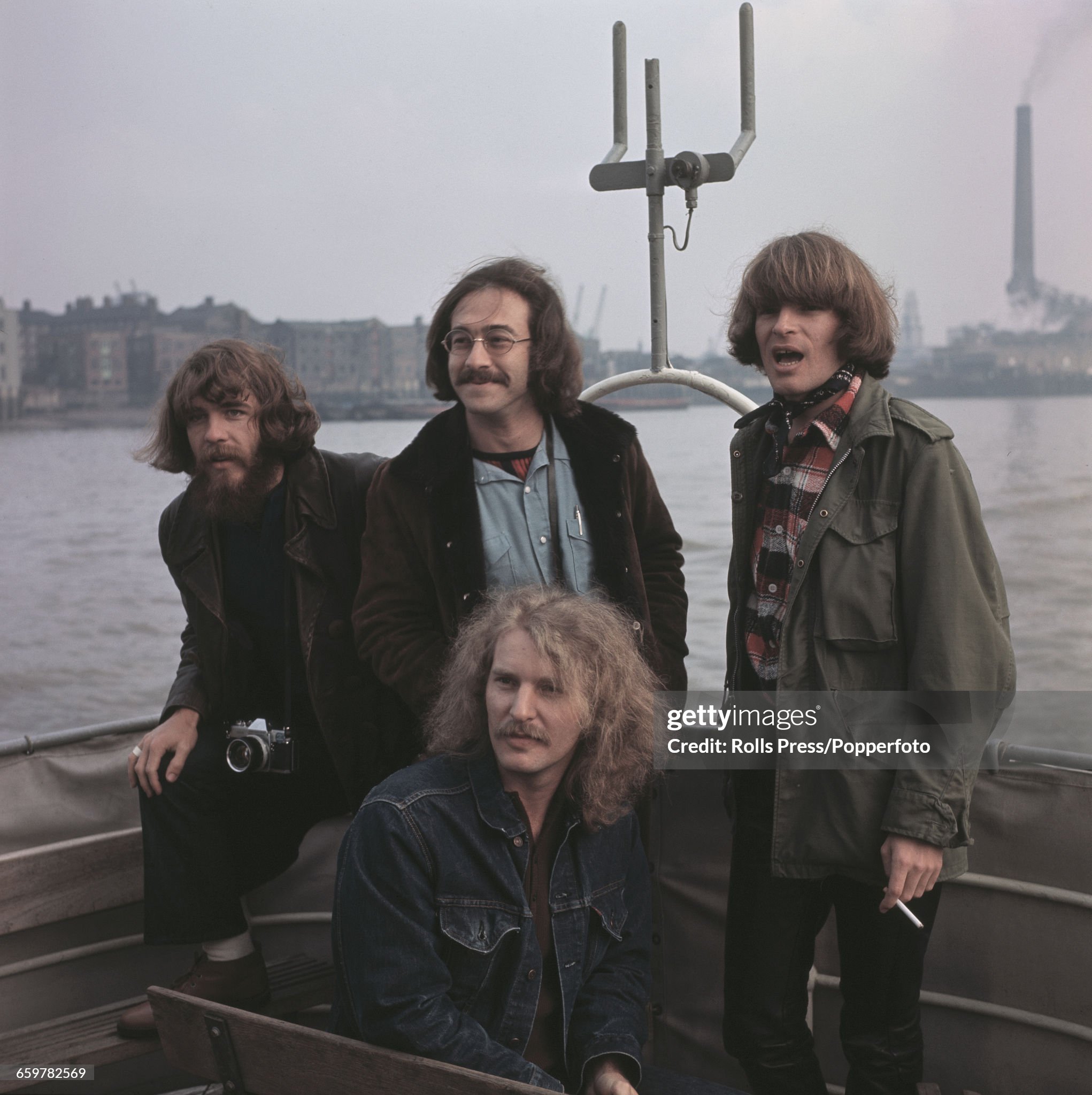
A Quiet Reflection on the Roads We Travel, Both Real and Remembered
There’s a certain kind of magic that lingers in the quieter corners of a great band’s legacy—songs not forged for the charts, but for those long drives at dusk, when memory and melody intertwine. Such is the case with “Side o’ the Road” by Creedence Clearwater Revival, a track that may not have stormed the Billboard charts upon release, but has etched itself into the hearts of listeners who understand that sometimes, less is more—and silence speaks volumes.
Released as part of their final studio album, Mardi Gras, in April 1972, Side o’ the Road stands apart from much of CCR’s more commercially celebrated work. The album reached No. 12 on the Billboard 200—not quite the chart-topping success of previous efforts like Cosmo’s Factory or Green River, but it marked a poignant turning point in the band’s history. By this time, internal tensions were high, and founding member John Fogerty had stepped back from his dominant creative role. This shift gave other members—Stu Cook and Doug Clifford—a chance to step forward, both musically and vocally.
Yet “Side o’ the Road”, an instrumental penned by Fogerty himself, remains one of the most introspective pieces in CCR’s catalog. Clocking in at just over three minutes, it is a moody, contemplative composition that eschews lyrics altogether—a rare choice for a band known for its vivid storytelling. But therein lies its power: it’s a song that invites you to listen not with your ears alone, but with your memories.
The track’s title evokes imagery instantly familiar to anyone who has ever pulled off onto a gravel shoulder just to breathe—to take stock of where they’ve been and where they might be going. There are no words because none are needed. The guitar work is understated yet resonant, echoing like thoughts bouncing off the walls of an empty room. The rhythm is steady, almost meditative, like the hum of tires on an open highway or the ticking clock in a quiet kitchen.
“Side o’ the Road” is less about spectacle and more about solitude. It captures that universal moment we all face at one time or another—the pause between chapters, between decisions—when life demands we pull over, if only briefly, and listen to what’s inside.
For longtime fans of Creedence Clearwater Revival, this song also marks an ending—not just musically but emotionally. Mardi Gras would be their swan song as a full band before disbanding later that year. The tension surrounding its creation is well-documented; many critics panned the album for lacking cohesion and called it uneven. Yet even amidst that chaos emerged this quiet gem—a testament to Fogerty’s ability to convey meaning without uttering a single word.
And perhaps that’s what makes Side o’ the Road so hauntingly effective—it doesn’t tell you what to feel; it simply creates space for you to feel something. For older listeners especially—those who remember where they were when CCR first came crackling through AM radios—this track can feel like an invitation to revisit old crossroads in their own lives: lost loves, roads not taken, dreams quietly deferred.
The beauty of music like this lies in its ambiguity. It’s not tethered to a particular era or event; it’s timeless in its stillness. In many ways, it mirrors life itself—not every moment has a chorus or climax. Some are just pauses along the way, necessary breaths before we continue down whatever road lies ahead.
So while “Side o’ the Road” may never have been sung aloud at concerts or blared from jukeboxes with much fanfare, it endures as one of those rare musical moments that honors silence as deeply as sound. It’s a hymn for those who know that sometimes it’s not about where you’re going—but about remembering why you started driving in the first place.
And perhaps that’s why we still return to Creedence—not just for their hits or their howls—but for songs like this one: quiet companions for our own winding roads.
